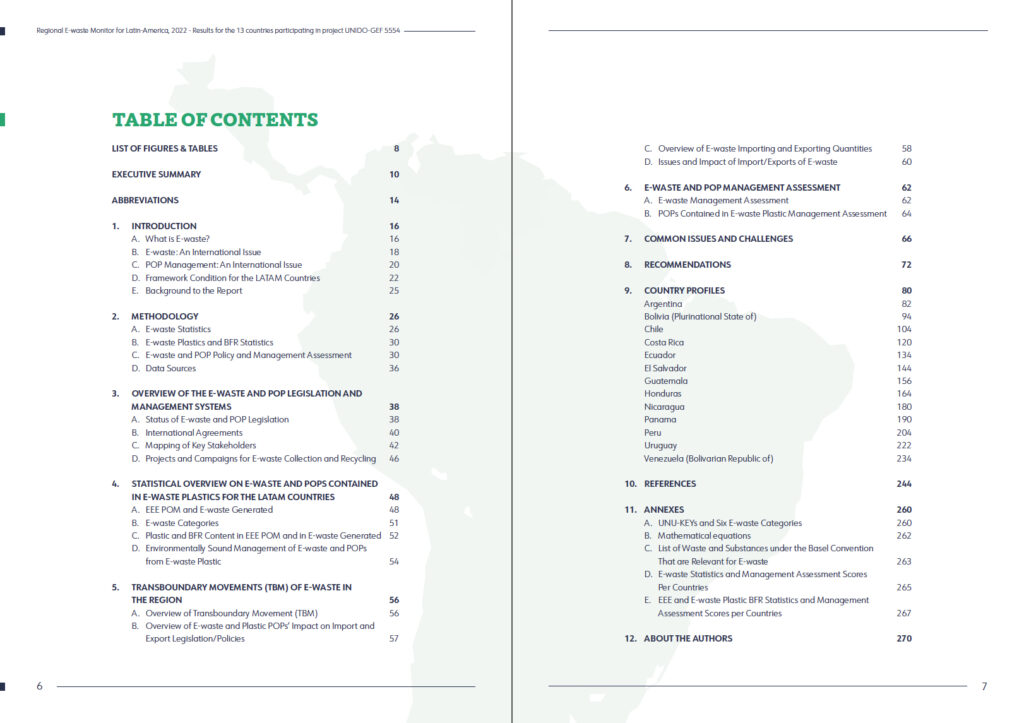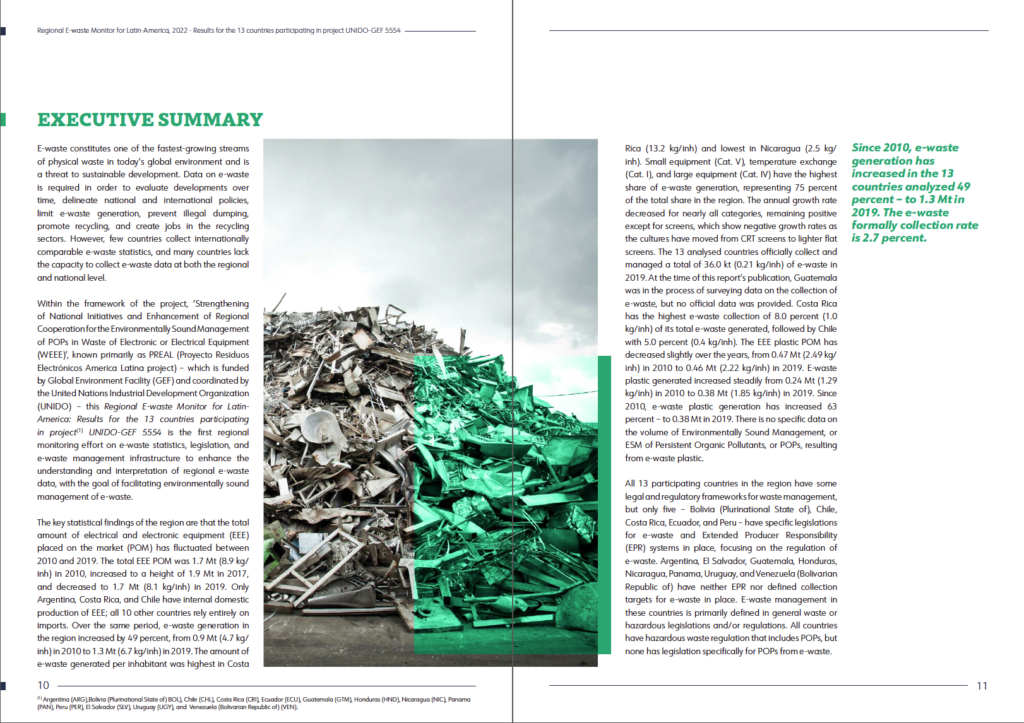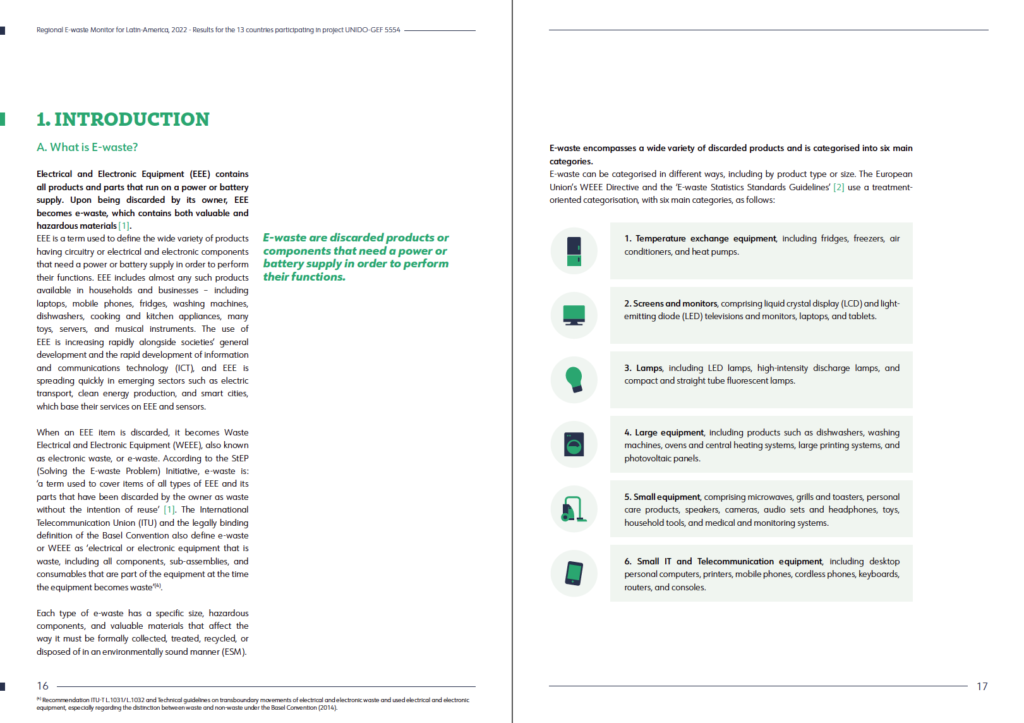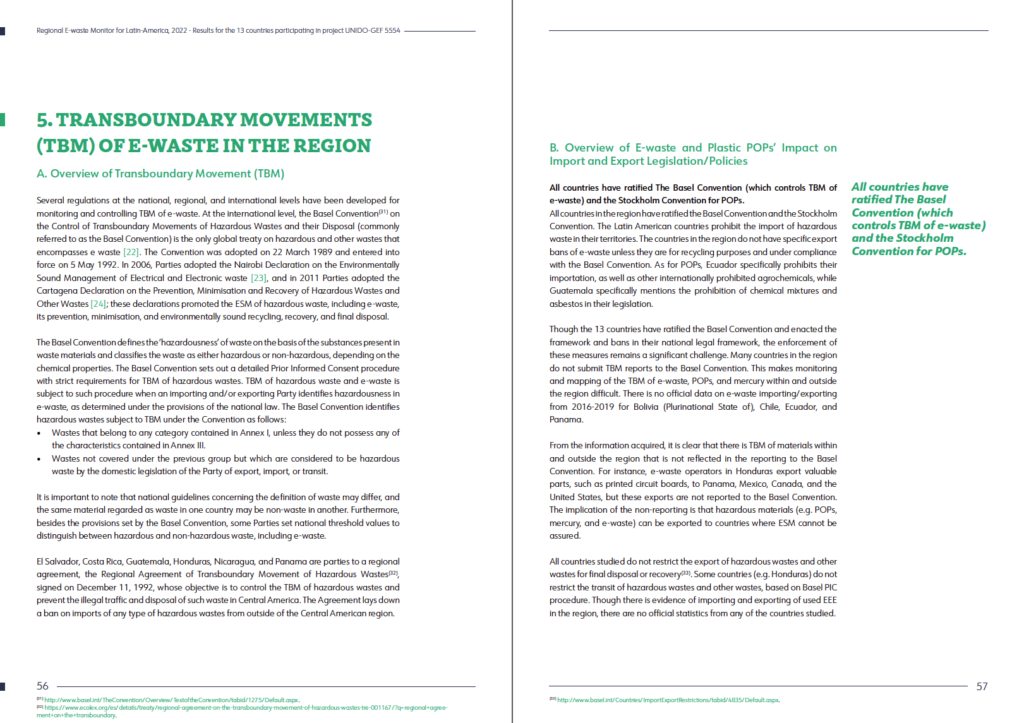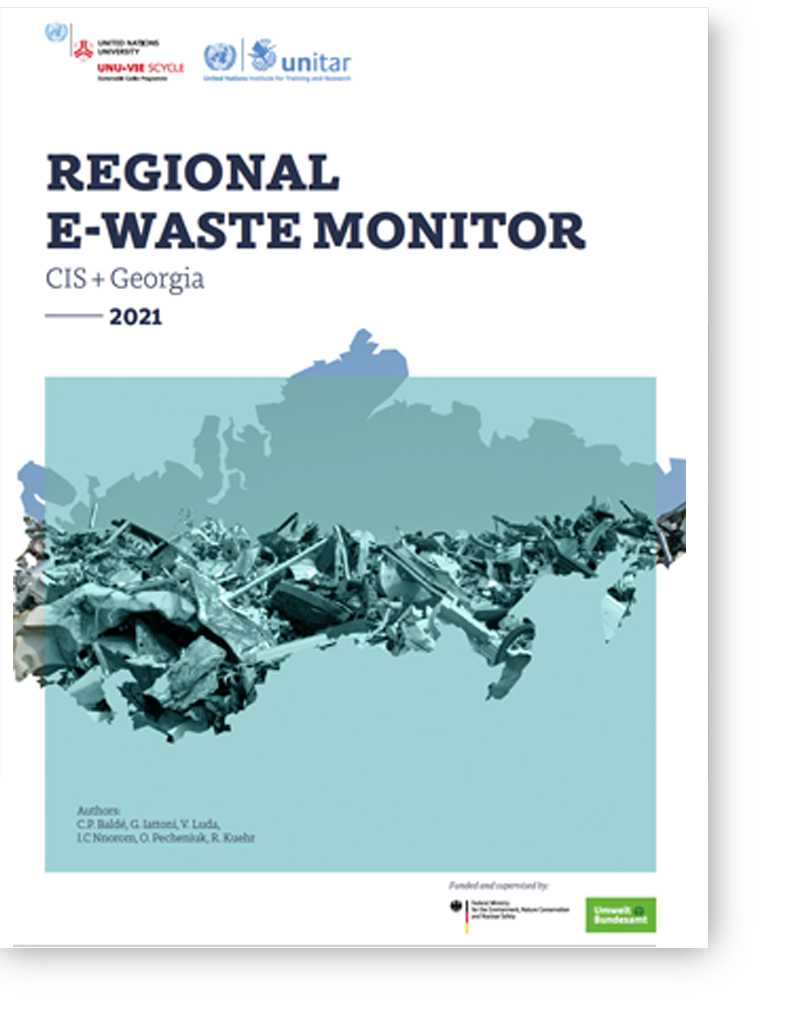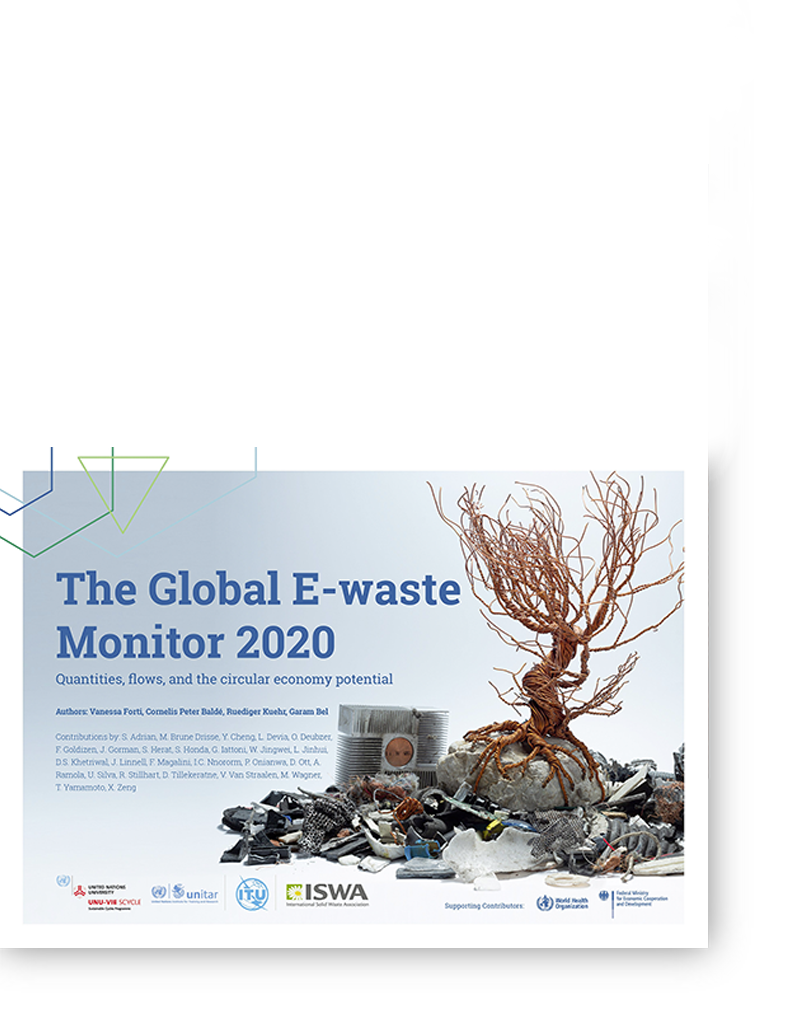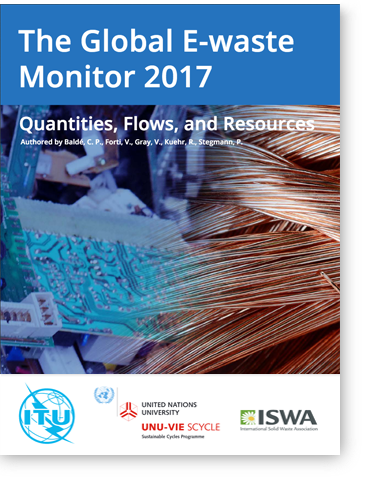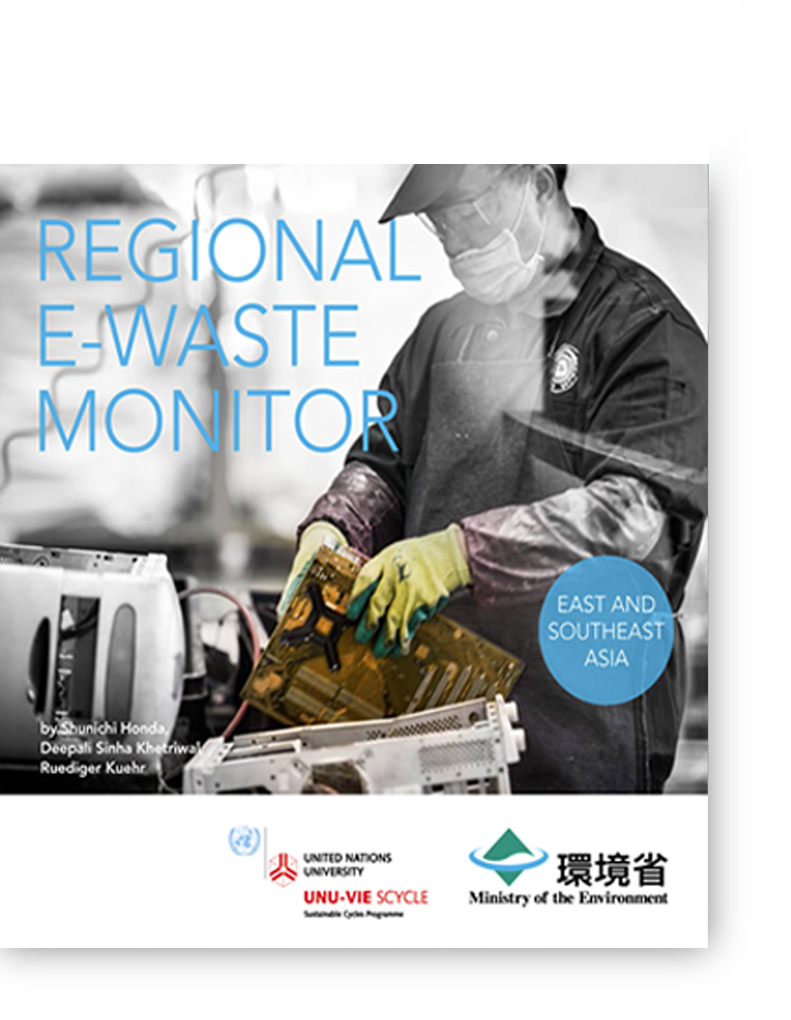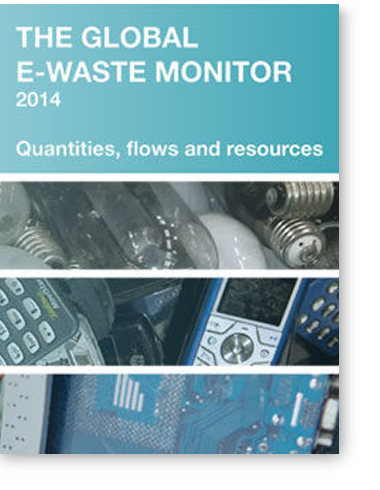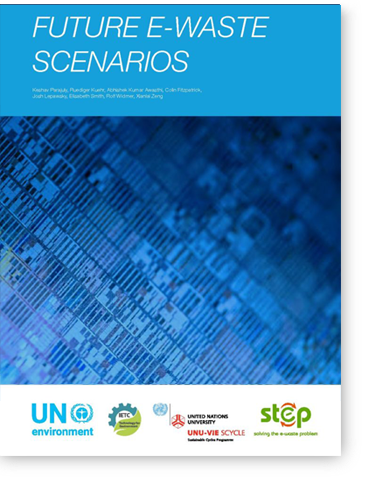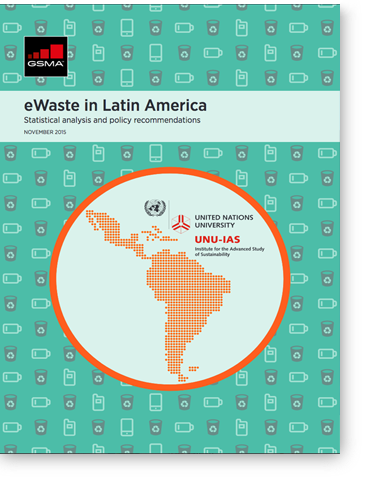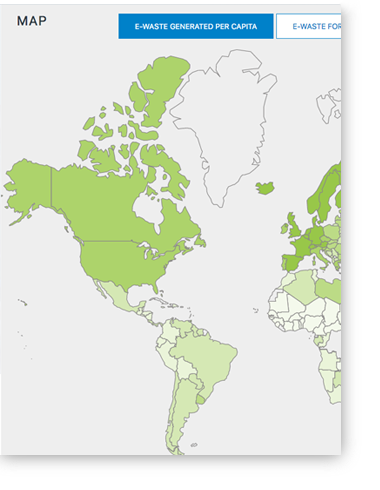The Regional E-waste Monitor for Latin America 2022
The Regional E-waste Monitor for Latin-America 2022, results for the 13 countries participating in project UNIDO-GEF 5554 provides an assessment of statistics, legislation, and management infrastructure of e-waste and persistent organic pollutants in Argentina, Bolivia, Chile, Costa Rica, Ecuador, El Salvador, Guatemala, Honduras, Nicaragua, Panama, Peru Uruguay and Venezuela. E-waste generation in the region increased by 49 percent, from 0.9 Mt (4.7 kg/inh) in 2010 to 1.3 Mt (6.7 kg/inh) in 2019. Since 2010, e-waste plastic generation containing persistent organic pollutants has increased 63 per cent – to 0.38 Mt in 2019.
E-waste collection for environmentally sound management takes place in all countries (although it could not be quantified in Guatemala) and 2.7 per cent of total e-waste are collected to be managed in an environmental sound manner.
All 13 participating countries in the region have legal and regulatory frameworks for waste management, but only five – Bolivia, Chile, Costa Rica, Ecuador, and Peru – have specific legislations for e-waste and Extended Producer Responsibility systems in place, focusing on the regulation of e-waste. All countries have hazardous waste regulation that includes POPs, but none has legislation specifically for POPs from e-waste.
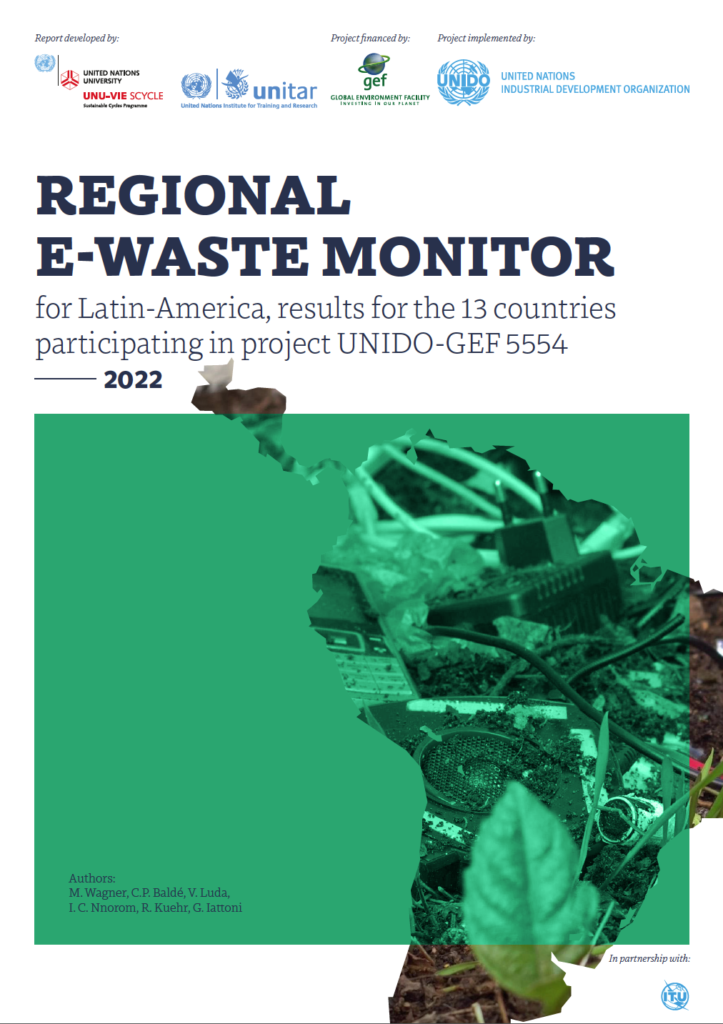
Monitor Features
1. What is E-waste?
Definition, product categories, disposal routes, key issues
4. Statistics
EEE POM and E-waste Generated, Categories, ESM
7. Common Issues
Five Driving Reasons
2. Methodology
Statistics, Management Assessment,
Sources
5. Transboundary Movement
Policies, Quantities, Issues and Impacts
8. Recommendations
3. Regional Overview Legislation and Systems
Status, International Agreements, Stakeholders, Projects
6. Management Assessment
Comparative Performance Review
9. Country Profiles
Book Preview
About the authors

Michelle Wagner
Michelle Wagner is a Research Associate at the Sustainable Cycles Programme, cohosted by United Nations University and the United Nations Institute for Training and Research. Michelle graduated Magna Cum Laude as an environmental engineer in the Universidad Católica de Honduras and has a Master’s degree in Material Science applied for Environmental Technologies from the Royal Institute of Technology (KTH) in Sweden. Her working experience and research focuses on waste management, circular economy resource efficiency and environmental assessment. She has also contributed and led tasks in various projects focused on mapping and quantifying critical raw materials stocks and flows at national and regional levels across Europe and Latin America. She has expertise developing methodologies, modelling, and reporting on waste statistics (e-waste, batteries, plastics etc.). Additionally, she has co-developed EEE Placed on Market, e-waste generated, and plastic tools and has authored their corresponding manuals with the intent of assisting countries in estimating key indicators. Moreover, Michelle is also author and co-author of various publications that focus on quantifying e-waste amounts, such as the recently published in-depth review of the E-waste Collection Rates and Targets. She is highly skilled in organizing and conducting institutional capacity-building in the EU and in developing countries through statistical workshops and e-waste academies that strengthen e-waste management, statistics, and policies. She previously worked as Project Manager in the Ministry of Environment in Honduras, where she certified, audited, and granted environmental licenses, evaluated the environmental impact of projects, and promoted environmental policies.

Dr. Cornelis Peter Baldé (Kees)
Dr. Cornelis Peter Baldé is a Senior Programme Officer at the Sustainable Cycles Programme, which is co-hosted by United Nations University and the United Nations Institute for Training and Research. He received his PhD in hydrogen storage at Utrecht University. Kees is the initiator of the Global E-waste Monitor series and is a researcher holding an H-factor of 17; he is also co-founder of the Global E-waste Statistics Partnership, author of various national e-waste and battery studies, and manager of research projects. Furthermore, he is a member of global expert groups on circular economy, waste, and sustainable development goals. He frequently provides policy advice to governments and is chair of the board of the Dutch National (W)EEE Register. Previously, he was the deputy team manager for environment statistics at Statistics Netherlands and was responsible for several ground-breaking publications on green growth and circular economy, as well as for various official statistics of the Netherlands.

Vittoria Luda di Cortemiglia
Vittoria Luda di Cortemiglia works as a consultant for the Sustainable Cycles Program of UNITAR. She graduated in law at the University of Turin and completed a Master of Arts (MA) in International Relations at St. John’s University in New York. Vittoria leads analysis and training programs related to waste crime, transboundary waste shipments, and environmentally sound management of waste.
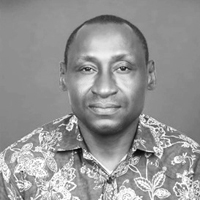
Dr. Innocent Nnorom
Dr. Innocent Nnorom works at Abia State University in Nigeria. He received his PhD in Analytical/Environmental Chemistry from the University of Ibadan, having studied pollution from e-waste management in Southern Nigeria. He was part of the 2009 E-waste Summer School. He has participated in several e-waste projects, including the E-waste Africa Project and the Person in Port (PiP) Project. He is a Senior Research Fellow at the Basel Convention Coordinating Centre for Africa (BCCC-A) in Nigeria. In 2019, he was a Visiting Research Fellow at the University of Manchester. He has contributed to the Global E-waste Monitor in recent years.
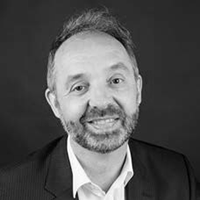
Dr. Ruediger Kuehr
Dr. Ruediger Kuehr is the Director of UNU’s Sustainable Cycles (SCYCLE) Programme and Head of the recently established UNITAR Bonn Office. He also serves as Head and Senior Manager of the SCYCLE Programme under UNITAR. As a political and social scientist by education, Ruediger has worked for more than twenty years on the e-waste challenge. He co-founded the StEP Initiative, co-initiated the development of an e-waste coalition among the various UN organisations and the SCYCLE Programme, and initiated the permanent E-waste Academies and E-waste Monitors at the global, regional, and national levels. But the foundation of Ruediger’s work is in establishing strategic approaches to sustainability, which renders life-cycle thinking indispensable in his activities; as such, he is also a frequent speaker for forward-thinking solutions at conferences and in media appearances.
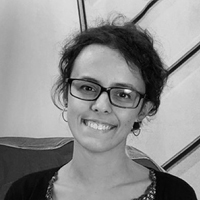
Giulia Iattoni
Giulia Iattoni is a Programme Associate at the Sustainable Cycles Programme, co-hosted by UNU and UNITAR. Giulia graduated cum laude in Environmental Engineering at the University of Bologna and spent a research period at the Technical University of Vienna, focusing on water quality and resources sustainability. Since 2019, Giulia has been involved on various projects focused on e-waste data collection and quantification, as well as on projects concerning the analysis of e-waste management models and related environmental impacts at the national and regional level. She is also designing and conducting workshops to build institutional capacity on e-waste statistics and legislation for several countries worldwide.
Other E-waste Data Resources
Regional E-waste Monitor Asia 2016
• Regional E-waste Monitor 2016: East and Southeast Asia
